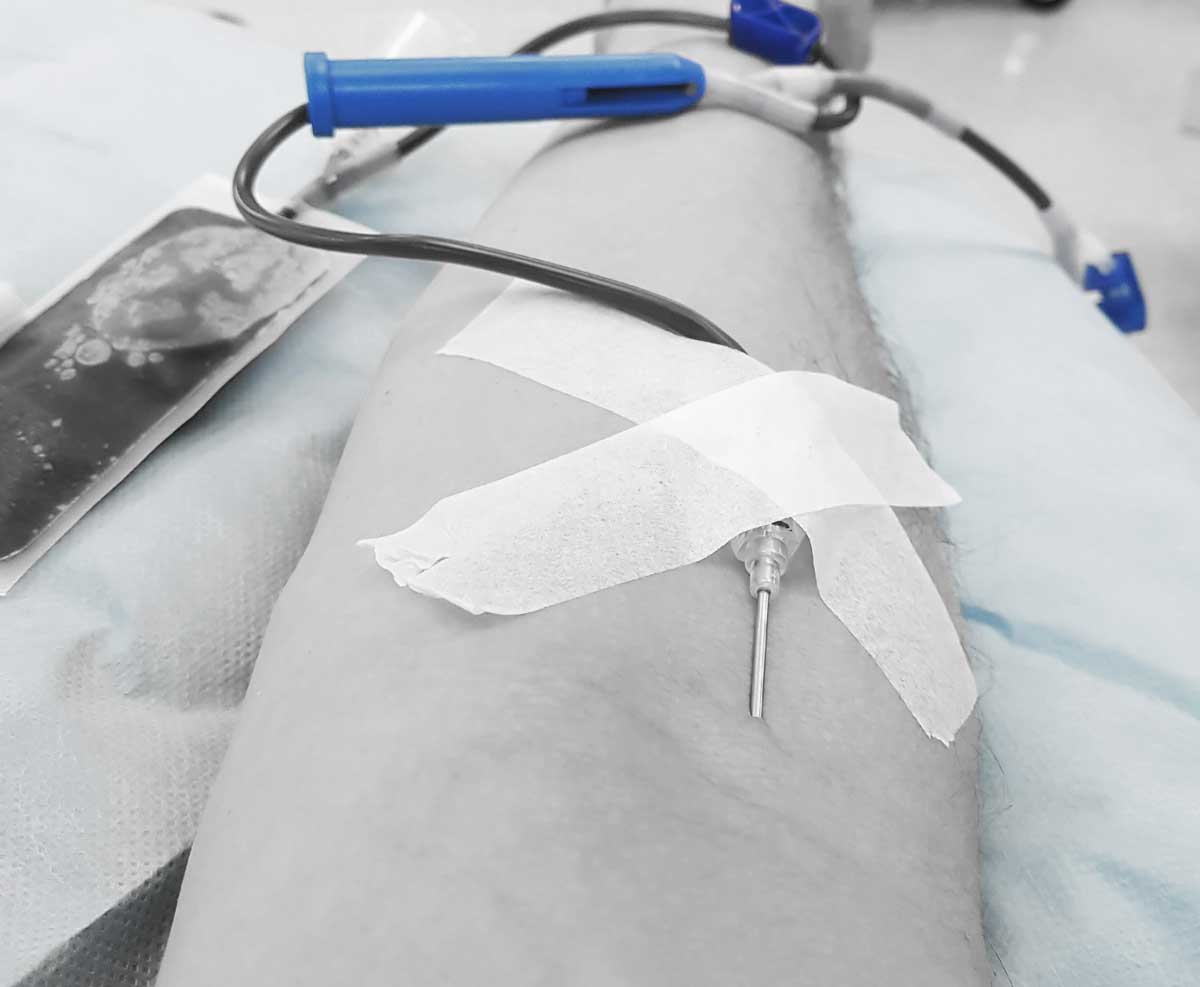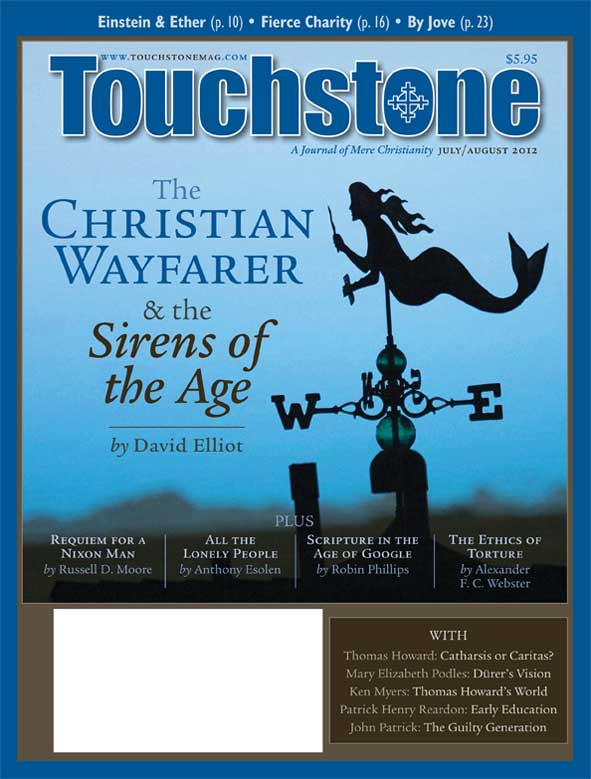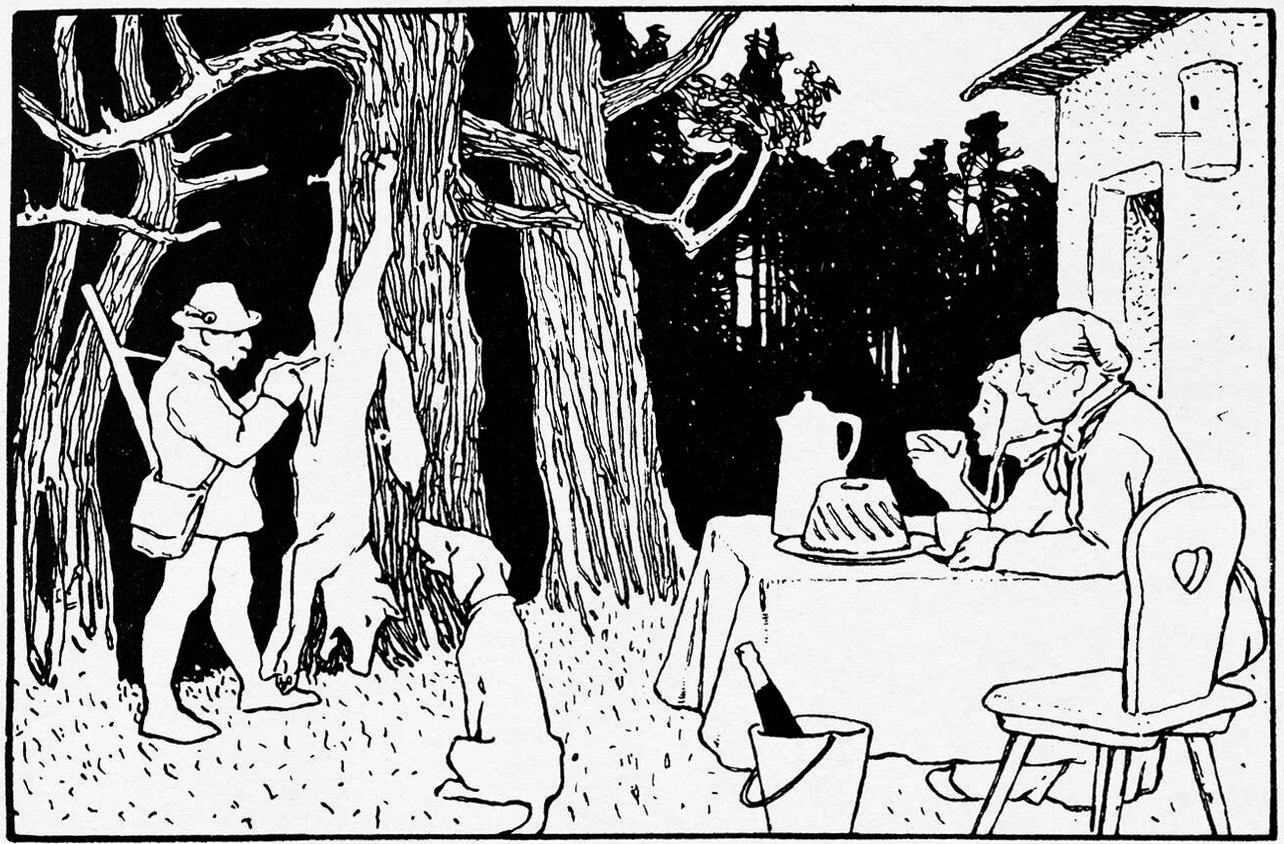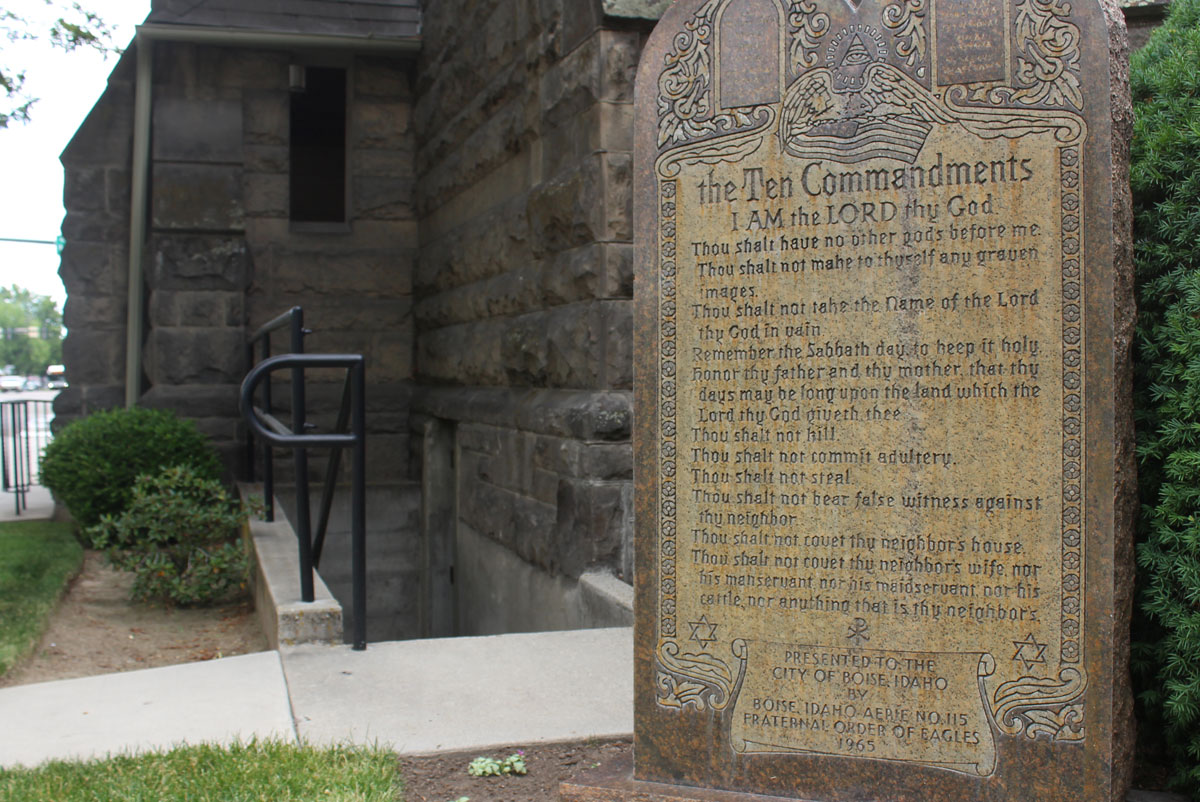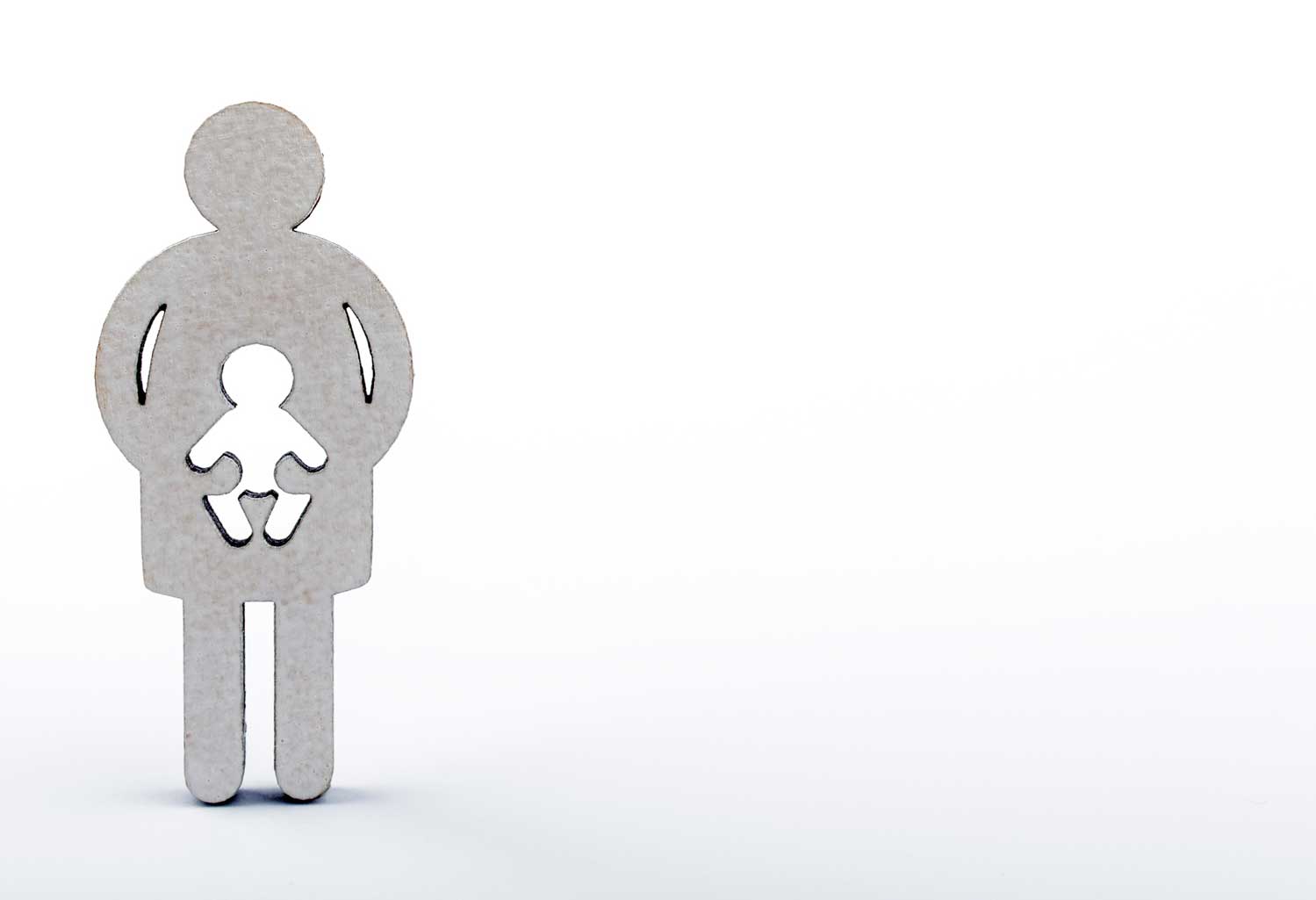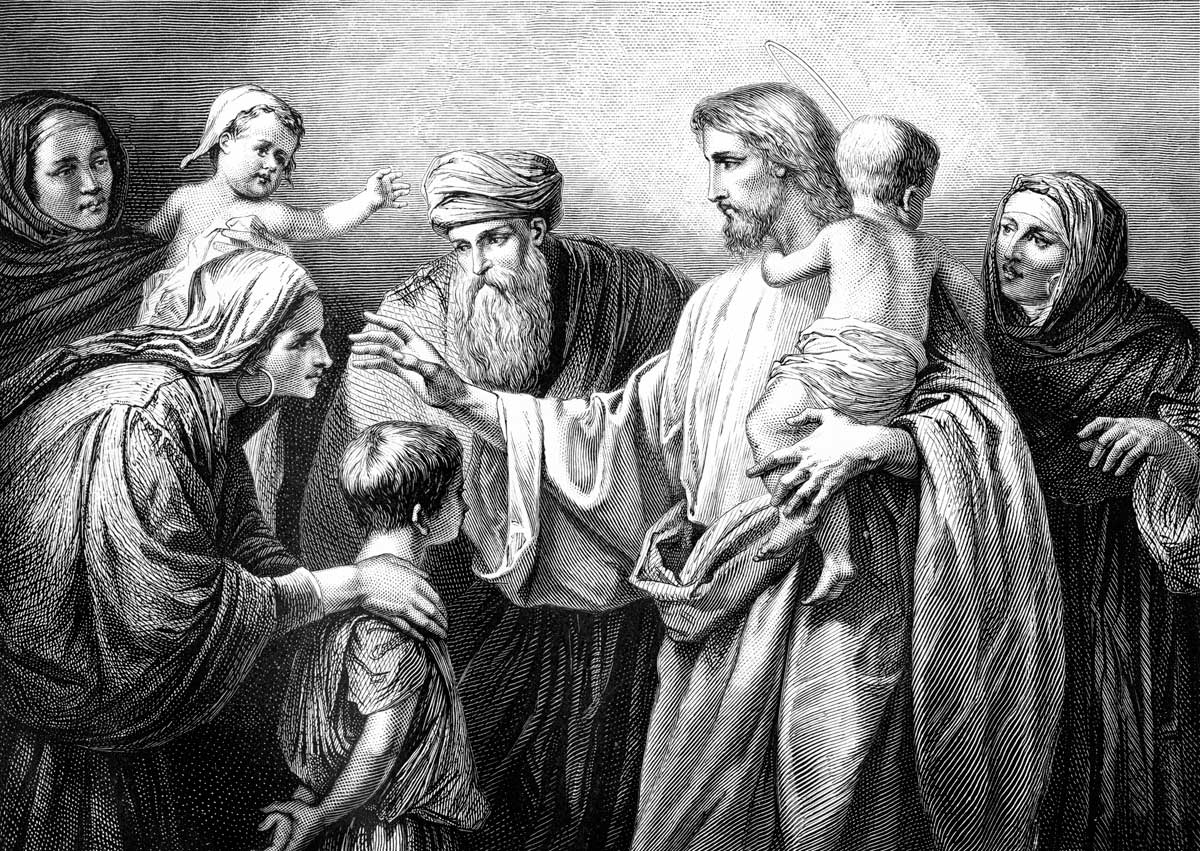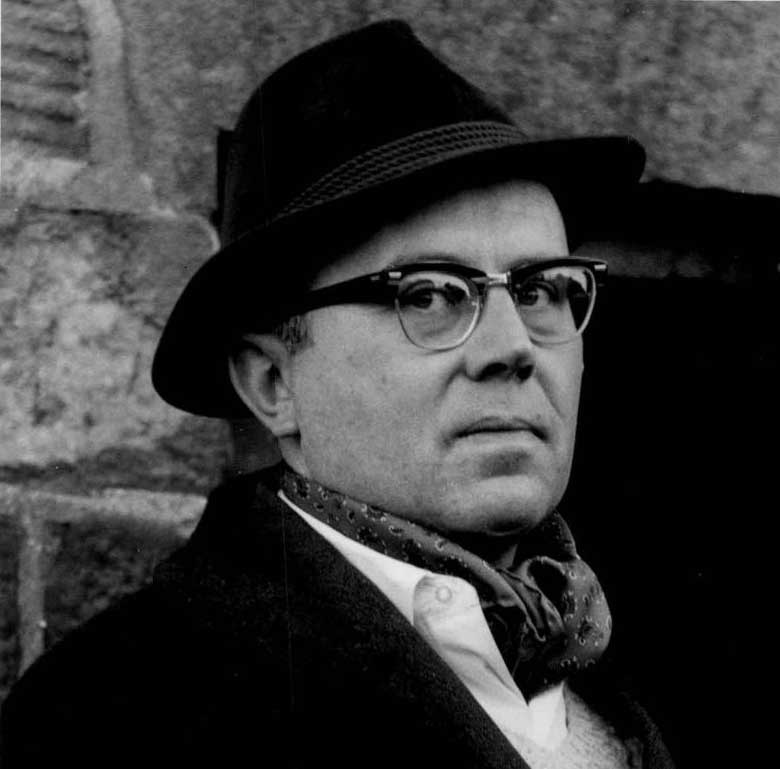View
The Guilty Generation
John Patrick on an Unnoticed Transformation of the Cause of Disease
If you want to elicit a startled response from a group of physicians, try asking the following questions: "Those of you with more than thirty years of medical practice, think back to the beginning of your practice. What proportion of your patients came to you because of what might be described as an act of God or nature, such as an ordinary bacterial infection? What proportion came to you with a disease for which they were responsible?"
The usual answers will be that 70 percent of all patients came as a result of acts of God or nature and 30 percent were themselves, at least in part, responsible for their ill health. The next question is obvious: "What about the situation today?" The ratio is completely reversed, or worse in the inner cities.
Now to the next question: "If you are sick and suffering and those you say you love are also suffering with you because of your actions, what can you not avoid knowing and feeling?" Most physicians are reluctant to think about this, but even the most recalcitrant among us will eventually mutter, "guilt."
In the whole of human history, guilt has been a troubling existential reality, and the only solutions that have worked involve words like atonement, sacrifice, repentance, restitution, grace, mercy, and justice. Yet none of these words merits a place in the index of our textbooks. Instead, we spend millions on antidepressants, tranquilizers, self-help books, alternative medicine, meditation, and sundry other placebos—everything except existential truth.
These realities provide an explanation for the modern paradox of a medical system that provides more effective, more technologically advanced, and more pain-free treatment than ever before but is, at the same time, abused, criticized, and distrusted more than ever before. Patients come to us with quasi-medical complaints that are usually diagnosed correctly and treated effectively. The real pain, however, is existential, lurking as it does, like the unseen mass of an iceberg, out of sight. Modern rock music is often nearer to expressing the raw emotion of this guilt and alienation than our own sanitized worship songs.

Lifestyles & Consequences
In addition to the phenomenon of guilt, there is another aspect of patient care that modern medicine ignores or disbelieves. This is the undeniable fact that healthcare costs differ according to lifestyle choices. Despite the well-documented increased healthiness of churchgoers, despite their low overall lifetime healthcare costs, and despite their greater preparedness for death, the ruling healthcare policy elite and the bureaucratic managers cannot bring themselves to seriously acknowledge these findings as important to the planning and survival of the healthcare system.
The March 15, 2012 issue of the New England Journal of Medicine is a case in point. Its main feature, the Shattuck lecture by Harvey Fineberg, on how to get to a successful and sustainable health system, has no mention of spiritual problems. Even conferences on health and spirituality seem to major in carefully nuanced ambiguities, with their occasional, completely historically deracinated accounts of some vague source of strength for our patients from a trendy new crystal or meditation technique.
Consider the demography of my country, Canada. The website of Statistics Canada shows that most Canadians still define themselves as Judeo-Christian in their beliefs (often disconnected from worship communities). The next-largest group proclaims itself to have no belief. (This group may appear larger than it is because Statistics Canada's list was less inclusive of all groups than the last census.) If we are to practice patient-centered, evidence-based medicine, then the guilt that our patients feel needs to be addressed through explicit, culturally based (not pseudo-multicultural) ethics and spirituality.
What we have instead, courtesy of the promotion of an unsophisticated and deeply condescending multiculturalism, is a nation without an articulated public moral consensus. But this does not mean that we, as individuals, do not still experience guilt, and neither does it mean that the gospel that comforted our grandparents cannot comfort us. Our patients have no choice but to live in this moral world where guilt cannot be avoided. For release, they must re-engage with the gospel.
Changes in Practice & Teaching
What can be done to help our patients? It is time to reintroduce courageously, even abrasively, specific religious understandings into the practice of medicine, insisting on the obvious fact that there are no multicultural patients. It is essential that we find appropriate ways to help our churches and communities of faith take up their responsibilities to comfort the broken-hearted, not with soft words alone, but with real liturgies and rituals of repentance, forgiveness, and absolution. As C. S. Lewis wrote many years ago, "Remember, this repentance . . . is not something God demands of you before He will take you back and which He could let you off if He chose: it is simply a description of what going back to Him is like" ("The Perfect Penitent," in Mere Christianity).
What does this mean for our own practice of medicine and teaching of students? We must begin by ceasing to speak of our Christian approach to ethics and medicine as "faith-based," as though the alternative, tacitly atheistic approach did not involve faith, and was therefore more rational. All real ethics are faith-based. Neither the existence nor the non-existence of God can be proved in post-Enlightenment terms, but the approach to guilt will, rationally, be entirely different depending upon which faith we hold to.
Without an existential framework, guilt can only be treated either by trying to undo the evil or by trying to dissolve the guilty feeling with psychotropic agents. We all know how ineffective both of these efforts are. Within a Christian structure, an approach involving repentance, confession, and forgiveness is rational, and we have all seen how incredibly effective real repentance and confession are.
We have no need to be ashamed. We have every right to demand that our patients' beliefs not only be respected, but also be taught to medical students, and applied in our own medical practice. Coincidentally, any good physician should wish to use those aspects of a patient's faith that have utility.
It seems unlikely that a profession currently dominated by a tacitly atheistic elite will be able to practice the open-minded tolerance on which they pride themselves and begin to encourage the necessary changes in practice, but churches must do these things. The implications for our church and para-church organizations are far-reaching. It will be necessary to address the problem of guilt wherever we serve if we are to offer our patients a measure of real healing.
We have the opportunity not only to offer physical healing but also to bring a neglected understanding and healing to the self-induced problems of anger, guilt, anxiety, and alienation. Paradoxically, most non-liturgical churches hardly ever mention repentance in their seeker-friendly services. The only solution to sin-induced pain necessarily requires our obedience to the Great Commission: witness to Jesus Christ, the Son of a loving and ever merciful God, who has entered our lives with healing in his wings. •
John Patrick was educated at the University of London, receiving his M.D. for work on cell physiology. During the late 1980s, he began to explore the importance of religious beliefs in the practice of medicine and the development of public policy. He has lectured widely on this and related topics. In 2002, he was awarded the Educator of the Year Award by the Christian Medical & Dental Associations. He is President of Augustine College, a Christian liberal arts college in Ottawa, Canada, and is also Professor of the History of Science and Medicine.
subscription options
Order
Print/Online Subscription

Get six issues (one year) of Touchstone PLUS full online access including pdf downloads for only $39.95. That's only $3.34 per month!
Order
Online Only
Subscription

Get a one-year full-access subscription to the Touchstone online archives for only $19.95. That's only $1.66 per month!
bulk subscriptions
Order Touchstone subscriptions in bulk and save $10 per sub! Each subscription includes 6 issues of Touchstone plus full online access to touchstonemag.com—including archives, videos, and pdf downloads of recent issues for only $29.95 each! Great for churches or study groups.
Transactions will be processed on a secure server.
more on culture from the online archives
more from the online archives
calling all readers
Please Donate
"There are magazines worth reading but few worth saving . . . Touchstone is just such a magazine."
—Alice von Hildebrand
"Here we do not concede one square millimeter of territory to falsehood, folly, contemporary sentimentality, or fashion. We speak the truth, and let God be our judge. . . . Touchstone is the one committedly Christian conservative journal."
—Anthony Esolen, Touchstone senior editor





